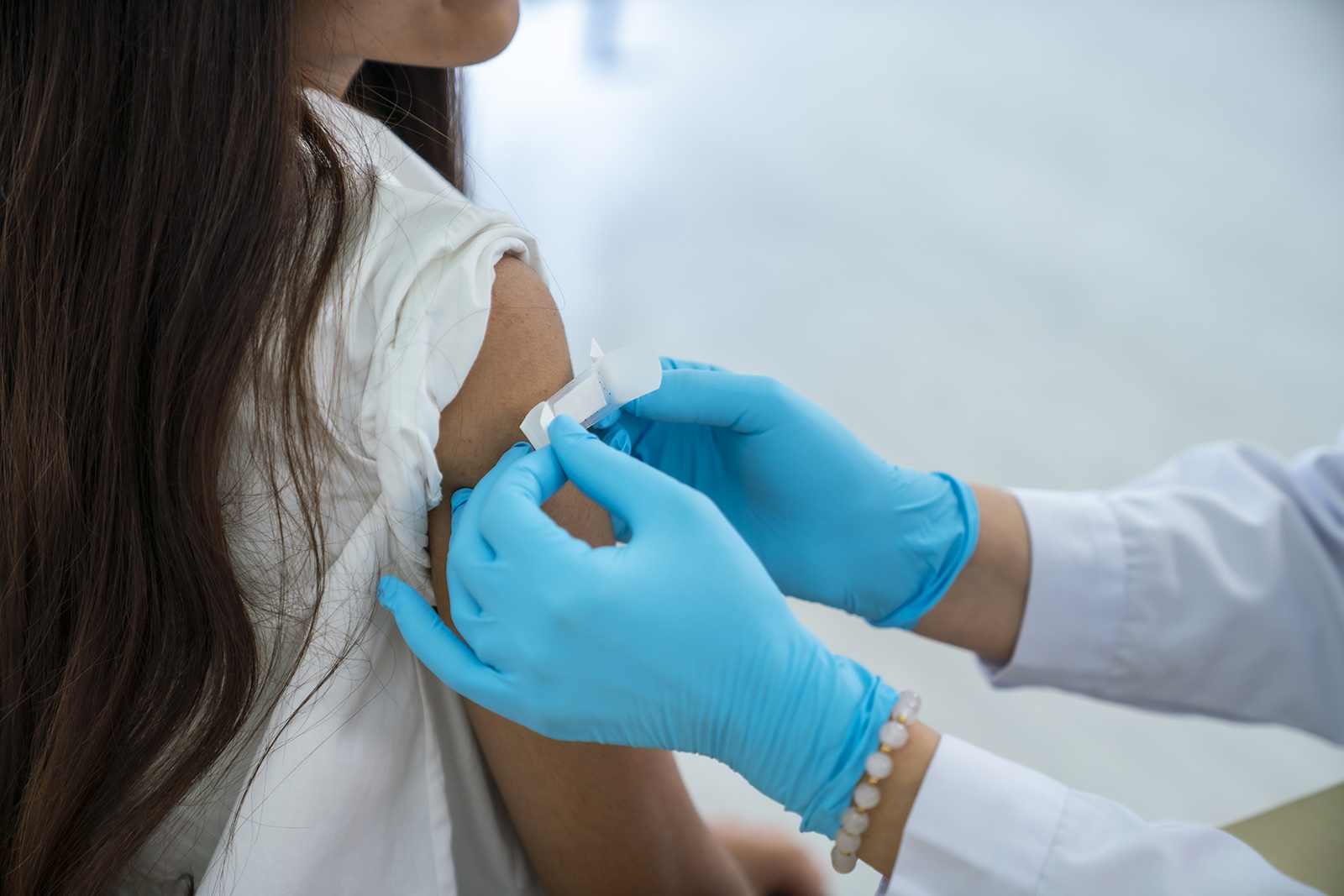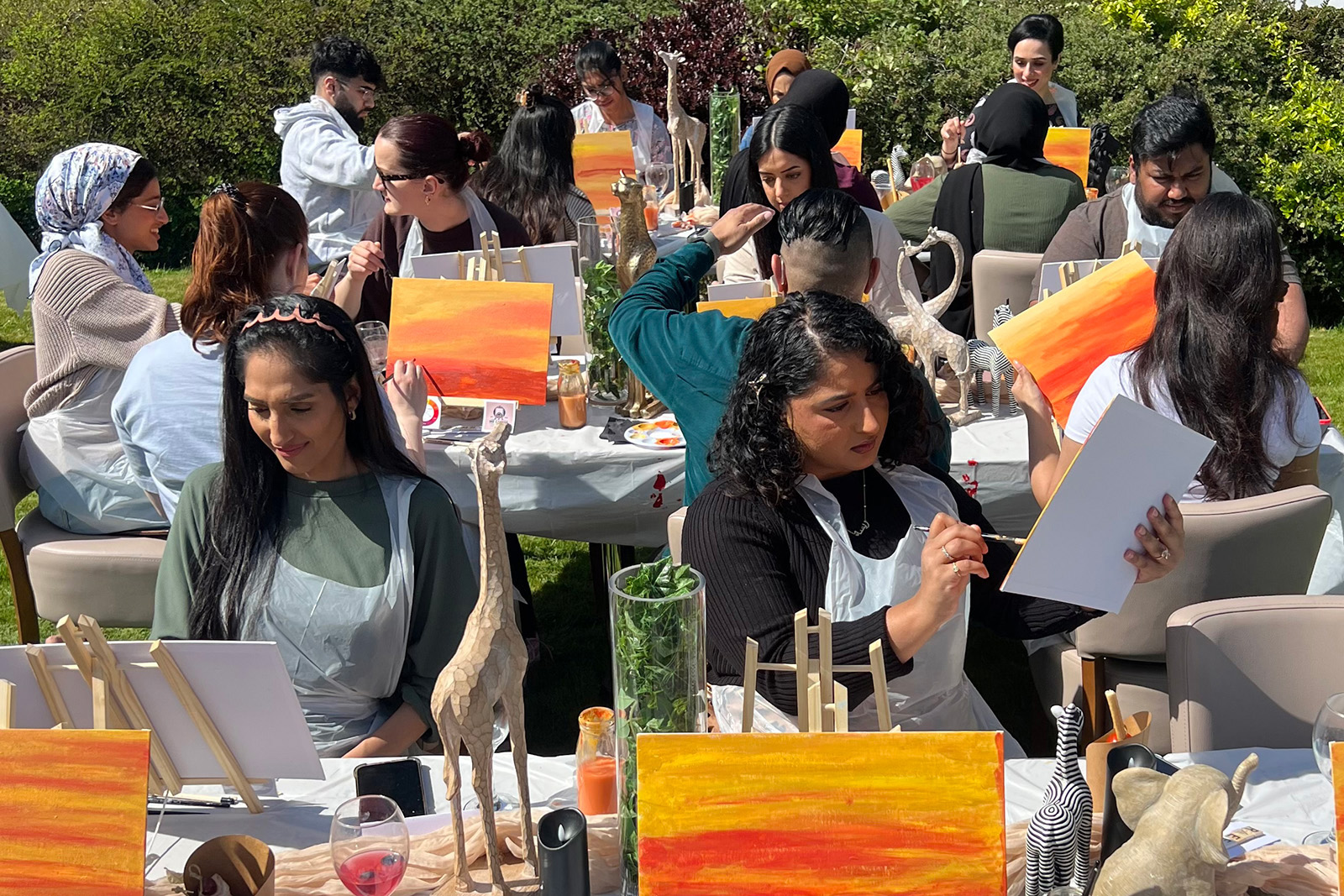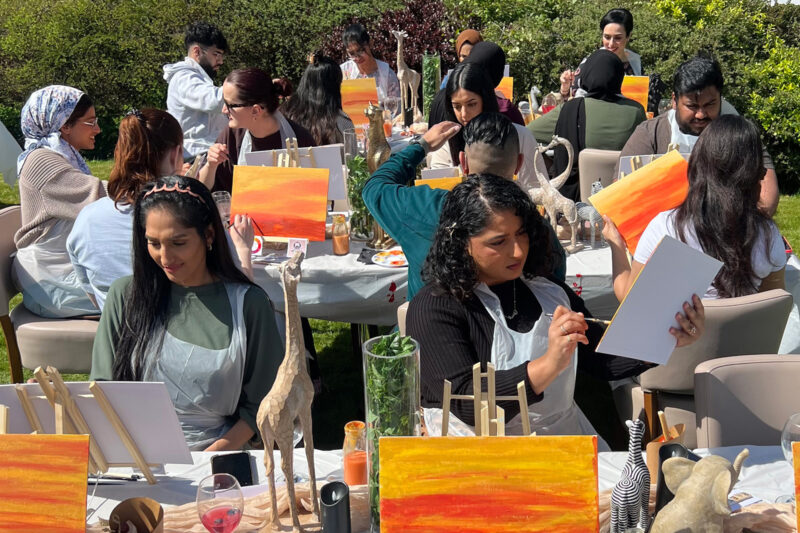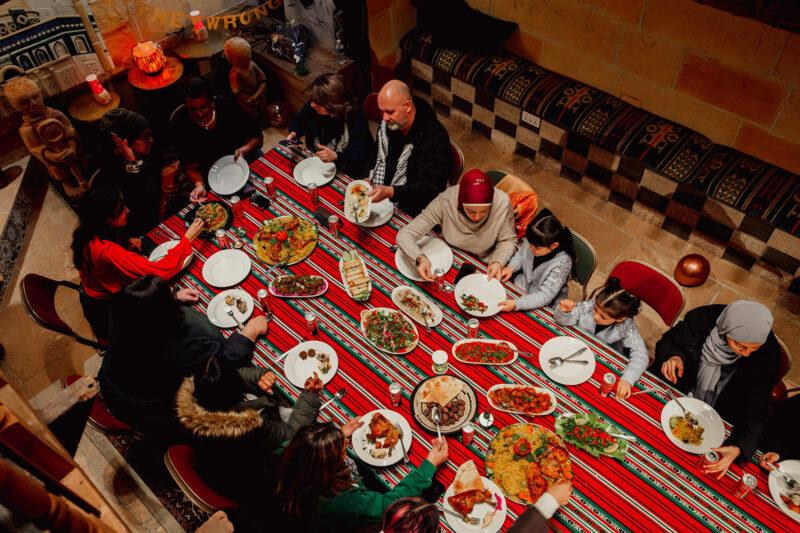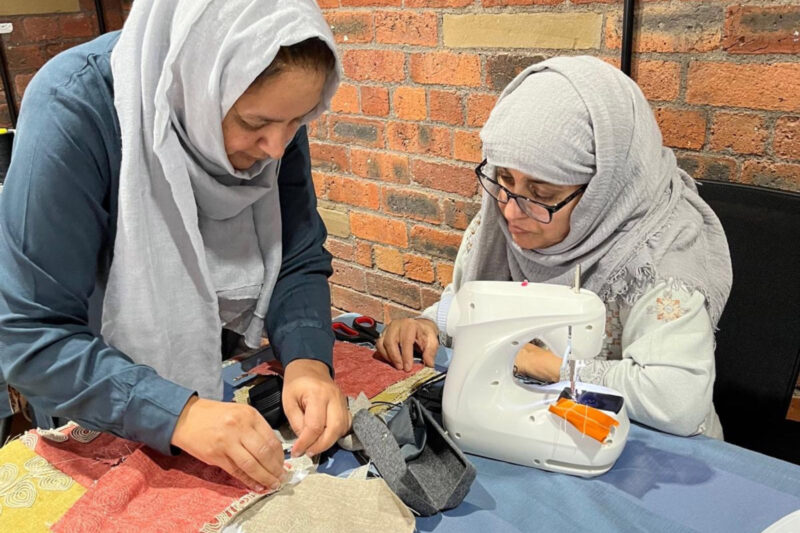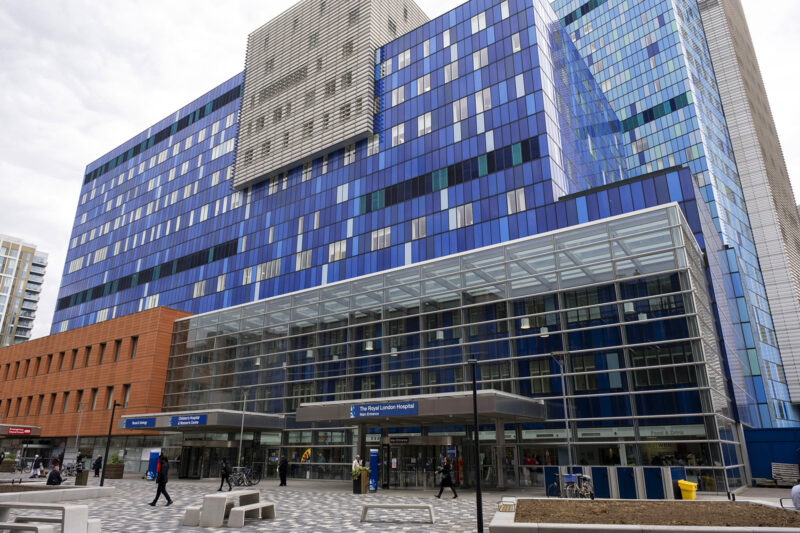A takeaway boom is damaging Bradford’s health. Is the solution more takeaways?

Delivery apps and deprivation have seen the number of cheap and unhealthy halal eateries soar. Two Muslim-owned businesses hope to change that
Nestled among the smash burger outlets, fried chicken shops and sweet stores that line the two miles of Leeds Road in Bradford is a takeaway called the Gym Kitchen Cafe. In one of England’s biggest halal food hotspots, it is something of a lone wolf.
Driven partly by low commercial rents and an explosion in home delivery apps, the number of takeaways in Bradford has almost quadrupled since 2010. According to Bradford Council, there are 678 takeaways in the city — one for every 714 residents, significantly above the UK average. The town hall does not record how many are halal, but a journey around the busiest streets, such as Leeds Road, Great Horton Road and Manningham Lane, reveals that the number with “halal” signs in their front windows runs well beyond 100.
This abundance of halal fast food may be harming the health of Bradford’s Muslim population, said Dr Halima Iqbal, part of a team that studied the needs of British Pakistani women living with obesity in the city. Bradford’s South Asian communities face a triple whammy of high deprivation levels, high underlying risk of developing type 2 diabetes, and a large number of cheap, unhealthy takeaway options nearby.
“There is clear evidence of a correlation between fast food outlet density per capita and obesity prevalence,” she said. “In my research with Pakistani women living in deprived areas of Bradford, there was an overwhelming concern about the increasingly high number of unhealthy fast-food outlets in their area and the impact this had on their and their family’s health when it came to fat gain.”
The Gym Kitchen Cafe, which opened in July, was one answer to the problem from semi-retired pharmacist Imran Ghafoor and his friend, businessman Zahir Ahmed. “We wanted to give something back to the community,” said Ghafoor. “Cardiovascular disease and diabetes really affect the South Asian community in Bradford and the initial treatment for that is diet. So that was a massive reasoning behind this.”
Ghafoor, Ahmed and their team draw on Nigerian, Turkish and North African recipes to make options such as their “build a bowl” menu appealing. “Times have changed,” said Ghafoor. “A lot more people in Bradford are health-conscious but unfortunately, when people go out to eat, the only option is unhealthy food.”
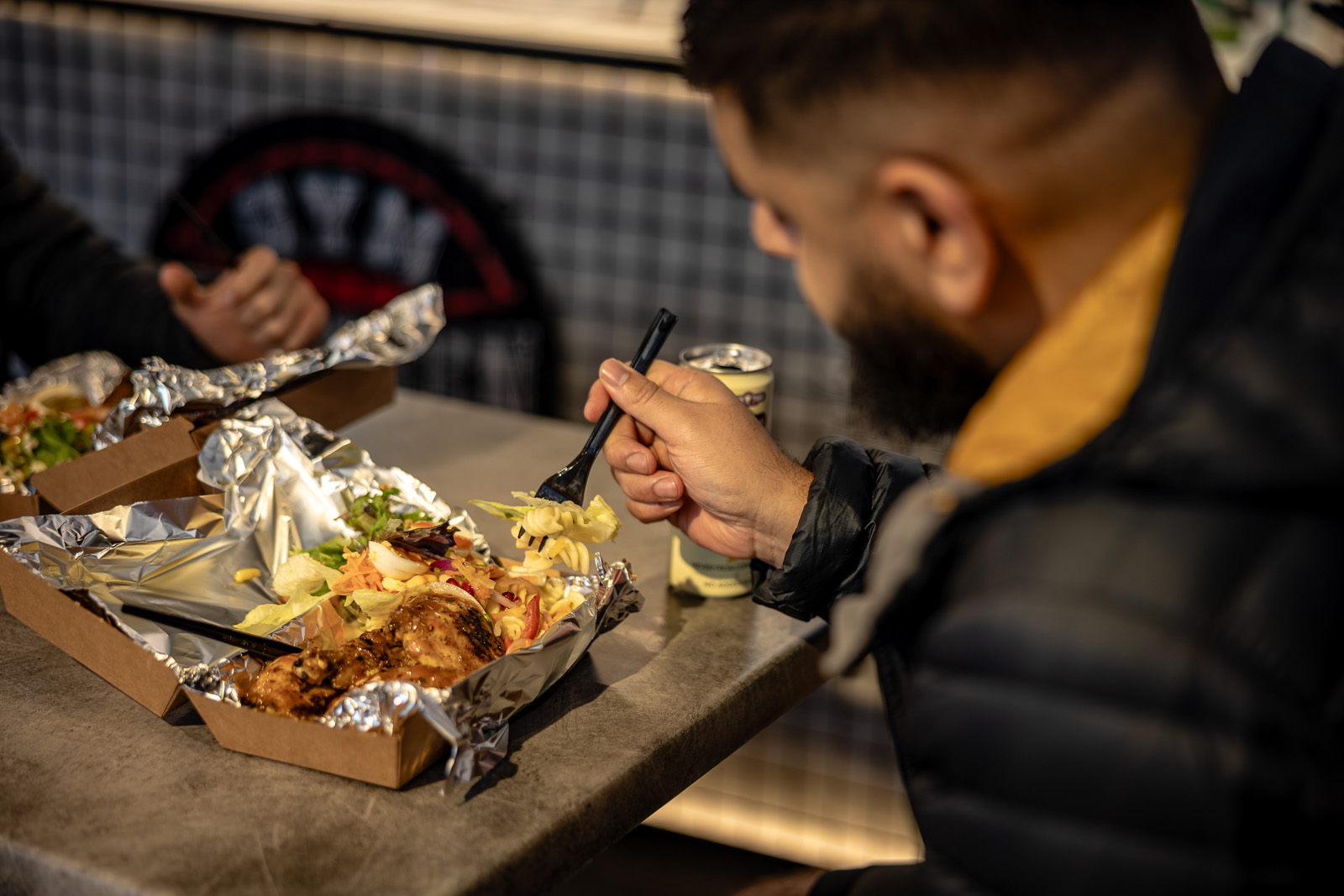
A little under four miles away in Lidget Green is Mobeens, a popular local takeaway serving a standard menu of doner kebab and chips, pizzas, fried chicken and traditional Pakistani curries. Its owner is 31-year-old businessman Chaudhry Mohammed Mobeen, who took over from his father.
After post-honeymoon weight gain, Mobeen decided to ramp up his gym routine and get his nutrition in order. Working long hours, Mobeen realised just how challenging eating healthily on the go could be in Bradford. So, utilising his takeaway’s staff and facilities, he started creating his own healthy pre-prepared meals. Soon, his friends at the gym wanted a taste.
In June 2021, Mobeen launched the city’s first halal meal prep business, Meal Pro Co. Customers can order and collect pre-cooked healthy meals on the same day from a deli Mobeen opened next door to his takeaway. He also delivers meals on a subscription basis nationwide.
NHS dietitian Nusrat Kausar has witnessed first-hand the effect Bradford’s halal takeaway industry is having on the community’s health. Working in GP practices across Bradford and Leeds, she daily encounters Muslim patients suffering from obesity, type 2 diabetes and metabolic liver disease.
Kausar points to overconsumption of fast food as a contributing factor to these health issues, with Bradford ranking highest in Yorkshire and fifth nationwide when it comes to South Asians developing “young type 2 diabetes” — that is, being diagnosed with the condition before the age of 40. NHS figures from 2023-24 show that 49.2% of South Asians aged 19 to 25 and 46.5% aged 26 to 39 in the wider West Yorkshire region had the condition diagnosed.
She says young type 2 diabetes rates are highest in Manningham, Bradford Moor and Little Horton, the three districts closest to Bradford’s main halal takeaway hotspots of Manningham Lane, Leeds Road and Great Horton Road respectively. In a city where the main social pastime for young Muslims is eating out, and opting for fast food is viewed as the quickest and most convenient choice, Kausar says it is no wonder that diabetes rates in this age bracket are climbing.
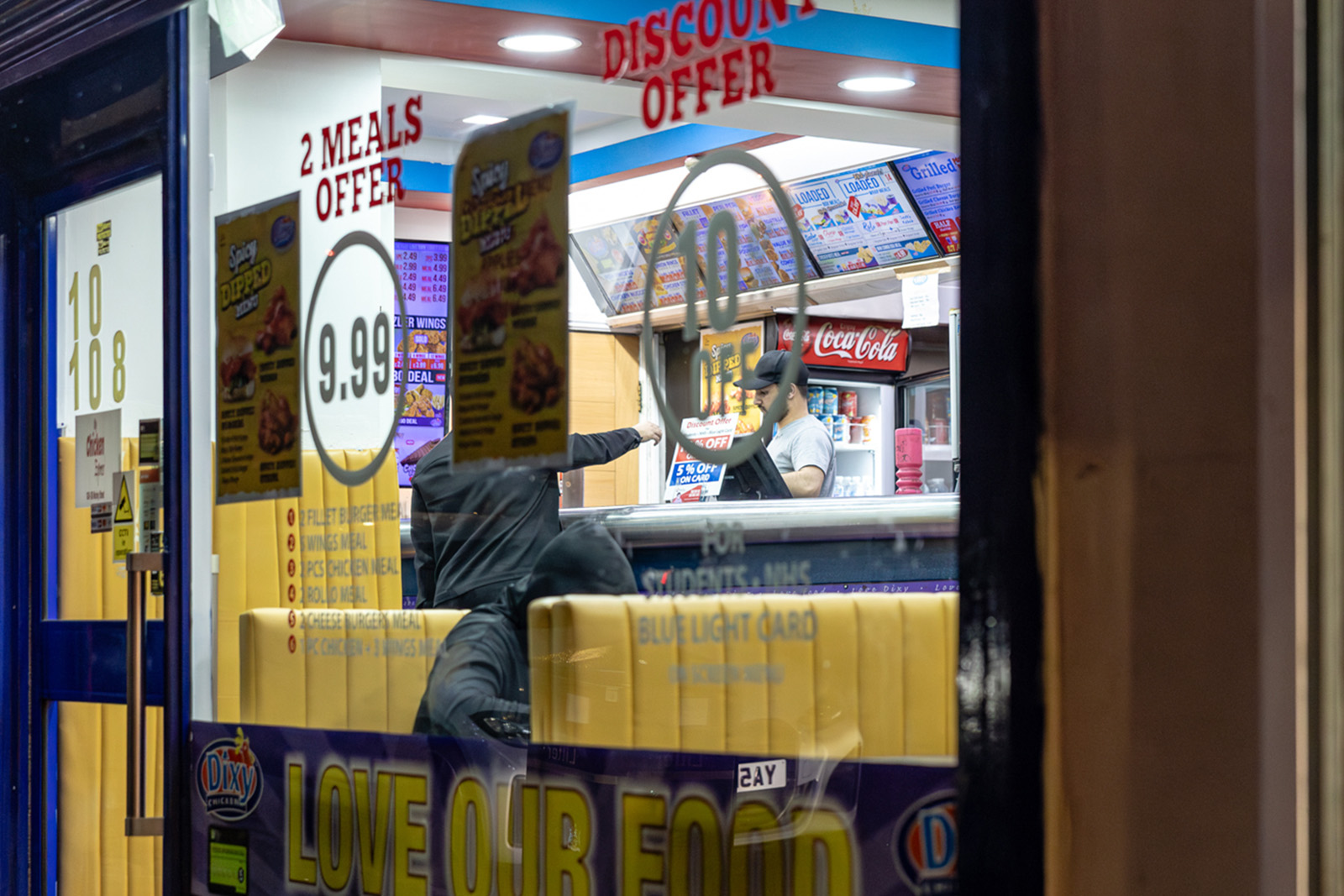
“In Bradford now we have got less alcohol, but in its place is a takeaway epidemic where you can be up till 11pm eating cake, biscuits, chocolates and desserts,” she said. “Young Muslims are consuming not just one but multiple takeaways in the same day.”
As part of the team at Apna, a 12-week programme funded by Bradford Council aimed at South Asians offering culturally sensitive nutrition advice from registered dietitians, Kausar says much has been done to educate the local South Asian community’s elderly and children about healthy eating — but that more must be done to reach those aged 18 to 39.
Mobeen highlights a prevailing belief among Muslims in Bradford that eating healthily costs more, pointing out a deli nearby that closed within six months owing to a lack of footfall. With many halal takeaways in Bradford offering meal deals, an entire family can be fed for as little as £10. Meal Pro Co prices its single meals at £5.
Bradford introduced planning restrictions in 2014 to limit the number of new fast food businesses opening but councillors said last year the number in some areas remained out of control.
The town hall’s head of public health, Tim Howells, said the council had been trying to combat the detrimental health impacts of takeaway food through its Living Well Takeaways scheme.
Now in its third year, the scheme works by providing free guidance to participating takeaway businesses on how to make their menus healthier, such as adjusting portion sizes, reducing salt and using healthier oils.
But Mobeen says a major factor preventing Muslim businesspeople from following in his footsteps is the overhead costs — something he managed to avoid only by sharing staff and equipment across his two food businesses.
“Many takeaway owners are not well-educated when it comes to healthy food,” he said. “They’re sticking to what they know.”
This article was amended on 18 November 2025 to correct the name of Leeds Road, Bradford takeaway The Gym Kitchen Cafe. This is to avoid confusion with The Gym Kitchen, a totally separate business that is a food supplier to supermarkets and is a trademark of TGK Brand Limited.
 Newsletter
Newsletter


